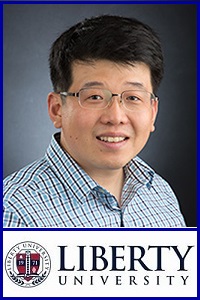Tagged: “adolescents”
I notice your interest in forgiveness education. If others such as myself were interested in starting forgiveness education in our own area of the world, what would be some of your key suggestions?
Anyone can help to start forgiveness education in their own community. If you visit our Store section of this website, you will see that we have professionally-produced curriculum guides for teachers from pre-kindergarten (age 4) through grade 12 (using United States language here) (grade 12 includes students at age 17-18). We also have an anti-bullying guide for middle school and high school. These guides can be used effectively by teachers who are motivated to spend up to one hour a week for about 12-17 weeks instructing students. Each teacher guide (up to high school) uses stories (many by Dr. Seuss) that are appropriate for the grade level. If the books that are recommended in each guide are too expensive, we have professionally-produced book summaries of each one. The summaries are about 2-3 pages long and get at the gist of the stories (as far as forgiveness is concerned).
In impoverished and conflict-zones of the world, we give all of the above materials away for free—no charge and no hidden costs. For others, we ask that they purchase the materials so we can continue serving contentious regions of the world.
You also can access teacher evaluations of these programs in the Education section of the website and you will see that teachers are very favorable to these programs.
Consider taking courage in hand and bringing a sample of the teacher guides to a local school (along with the teacher-evaluation information and perhaps the Basic Description of the Guides). Tell the principal or teacher about the objective of forgiveness education: to help children grown in the virtues of love, mercy, and forgiveness, which can reduce student anger and increase academic achievement. Tell the principal or teacher that we provide free materials (if they are in an impoverished or contentious region).
For additional information, see Forgiveness Education: Curriculum.
As a follow-up question, let us suppose that children as young as 10-years-old have learned about forgiveness and want to practice it. How can they go about forgiving a parent if that parent keeps offending?
This will depend on the severity of the injustice. If there is abuse, it would be my hope that this will be discovered by professionals in the child’s school. Such abuse often leads to observable effects in children such as inattention during schoolwork, aggressive acting out in school, poor grades, and anger or depressive mood. The child needs justice along with forgiving. The forgiving in this case likely would begin only after the child is in a safe place. If the injustice is not so severe as to require a solution from outside the home, the child could start forgiving by: a) acknowledging anger. This can be difficult because of loyalty to the parent; and b) seeing the inherent worth in people in general and then applying it to the parent.
Many children are very good at exclaiming: “That’s not fair” and if a child is schooled in the moral virtue of forgiveness, which includes schooling in fair treatment, this kind of proclamation, spoken from a forgiving heart, may aid parents in thinking through their own behavior. This kind of pattern is not easy to solve and so, again, I recommend forgiveness education in schools to equip children with the tools for overcoming disappointments and anger caused by truly unfair treatment against them.
For additional information: Teaching Kids About Forgiveness.
Can children forgive a parent while they are still young and living with the parent?
In my experience, because forgiveness is so little discussed with children, as least in any deep way, most children actually do not think about forgiveness and they do not know how to go about forgiving. This is one reason why instituting forgiveness education is so vitally important. Again in my experience, children who are treated unjustly in the home do not begin to reflect on this until they are in later adolescence and are in transition from the home. It often is at this time that the nearly-adult children look back and can be filled with deep resentment in need of amelioration. If these nearly-adult children already were fortified with what forgiveness is and how to go about it, this would serve them well.
For additional information, see Kids Are Smarter Than You Think.
A School Anti-Bullying Program That Works!
No one argues about the need to stop bullying in schools. Bullying’s adverse effects not only impact the child when the bullying occurs but typically impact a victim’s health and emotions throughout the person’s lifetime (see “The Impact of Bullying” box below).
That reality has become a growing topic of concern in the academic community with bullying being cited as a universal problem in countries around the world. Over the past several decades, literally hundreds of school-wide anti-bullying programs have been developed and implemented. That raises the question, of course: Do school antibullying programs work?
The typical answer from those professionals studying that question is: “Not so well. We need to do better.”
And sure enough, that’s the inauspicious conclusion of a just-completed systematic review of scientific publications covering the past 20 years. According to the study, Whole‐school Antibullying Interventions, a full 50% of all the school programs reviewed failed to “show significant effects on bullying prevalence” or found negative results including an actual increase in bullying.
The study, published in April by the peer-reviewed journal Psychology in the Schools, was conducted by university researchers in Brazil. While their study found that anti-bullying interventions resulted in increased reporting of bullying occurrences (with resultant increases in the use of punitive discipline), at the same time many of the programs failed totally–primarily due to inadequate time for training and implementation as well as lack of support.

Dr. Jichan J. Kim
Those findings come as no surprise to many psychologists. In fact, the report actually documented and reinforced what educational psychologist Dr. Jichan J. Kim first reported more than four years ago in his University of Wisconsin-Madison doctoral thesis: The Effectiveness of a Forgiveness Intervention Program on Reducing Adolescents’ Bullying Behavior.
Dr. Kim’s thesis includes a 29-page literature review in which he documents the unusually large number of research projects demonstrating the ineffectiveness of most school-wide anti-bullying programs including:
- A 2007 review of 45 separate school-based anti-bullying studies involving 34,713 individuals that concluded “the positive changes were too small to be supported as significant;”
- Another 2007 examination of 16 major anti-bullying programs across 11 different countries that showed mixed results with less than half the programs demonstrating desirable effects;
- A 2008 evaluation of 16 studies across 6 nations involving a total of 15,386 K-12 students that showed the interventions tended to influence students’ attitudes and self-perceptions but not their bullying behavior; and,
- Studies completed in 2012, 2014, and 2015 (one involving 560 school psychologists and school counselors) supporting the lack of evidence-based interventions.
Despite all the negative assessments he uncovered, Dr. Kim believes there is one approach that might be effective–helping adolescents exhibiting bullying behavior to forgive those who have offended them in the past. That approach, Dr. Kim says, is still not widely used and is, therefore, still not a compelling component of the scientific literature although he is confident it “can be beneficial.”

Dr. Robert D. Enright
That intervention approach, in fact, is the one advocated in The Anti-Bullying Forgiveness Program developed more than 8 years ago by Dr. Robert Enright, founder of the International Forgiveness Institute. The program not only incorporates lessons-learned from Dr. Enright’s more than 40-years of forgiveness research, it also integrates the scientifically-quantifiable forgiveness process he developed and , perhaps most importantly, it focuses directly on the one doing the bullying.
“Those who bully usually have pent-up anger and as a result they displace their own wounds onto others,” Dr. Enright explains. “Our program is meant to take the anger out of the heart of those who bully so that they no longer bully others.”
Dr. Enright says his research has taught him to take an approach that may seem counter-intuitive today, but will appear obvious to many in the future: “Yes, help the victim, but also help the one who is bullying to get rid of his or her anger, which is fueling the bullying. Those who bully have been victimized by others. Help them to reduce their resentment toward those who were the victimizers and the bullying behavior will melt away.”
- Learn more about Dr. Enright’s Anti-Bullying Forgiveness Program.
- Learn more about Dr. Jichan Kim, an Assistant Professor of Psychology at Liberty University in Lynchburg, VA. (Disclosure: Dr. Enright was Jichan Kim’s graduate school adviser).
- Read a review of Forgiveness Therapy.
- Learn more about the long-term impacts of bullying in the 2014 British Study.
- Learn how bullying statistics compare in your state versus others, with this interactive Bullying-Cyberbullying-Sexting Map of the U.S.
- Learn about bullying and cyberbullying in your country with this interactive International Research on Bullying Map of the World.
I hear colleagues tell me that it is child abuse to impose the education of forgiveness on unsuspecting students. How would you answer such a charge?
Good philosophy is the pursuit of wisdom. Good education is the same. Part of being wise is to know how to control one’s anger, to reduce resentment, and to forge healthy relationships in the home and in the community. Forgiveness, seen in scientific studies, is one effective way of reducing resentment and fostering better behavior and relationships. If we then deprive a child of this part of wisdom, are we somehow aiding that child’s development or stifling it? Teaching about forgiveness is far from child abuse. Deliberately withholding knowledge of forgiveness is educational deprivation, which should happen to no child.
For additional information, see Your Kids Are Smarter Than You Think.



